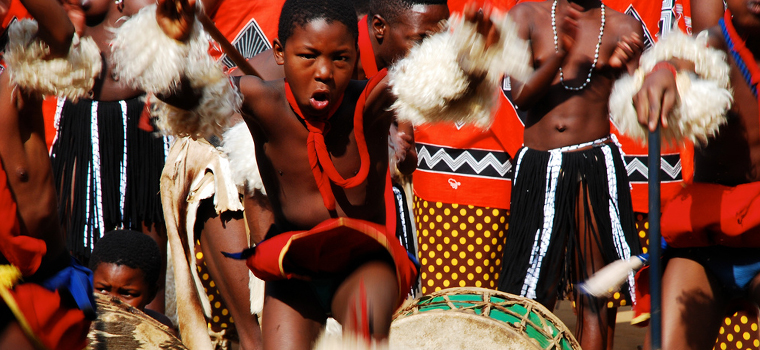
TRADITIONAL CEREMONIES AND DANCES
The Emaswatis are a proud but peaceful people with happy, easy-going, and often humorous personalities. Old Emaswati traditions are carefully guarded and colourful ceremonies regularly take place to mark special occasions. Traditional dances and ceremonies are the distinctive features of the Emaswati culture. They bring the nation together and make it to be one big family. These features are also attractive to international tourist. Examples of such ceremonies are the following:
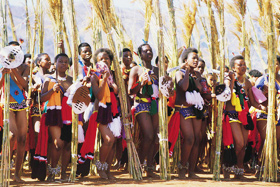
UMHLANGA/REED DANCE
The Reed Dance takes place late August or early September. It is one of the most colourful ceremonies in the whole of Africa. It attracts young maidens from all over the Kingdom. The maidens gather reeds from selected areas and travel to the Royal Kraal to honour the Queen Mother. It is from this custom that the ceremony derived its name. The maidens dress in short beaded skirts, colourful sashes, ankles, and bracelets. The royal princesses wear red feathers in their hair and lead the maidens to perform traditional dances before their Majesties, i.e. the climax of the event.
INCWALA CEREMONY
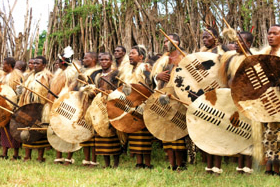
This is the first fruit ceremony Of the Kingdom. It is the most sacred ceremony of all the Emaswati rituals, during which the king plays a dominant role. It is held in a date chosen by royal appointed traditional astrologers in conjunction with the phases of the moon, normally in December or January. This ceremony normally last for days. Young men perform various rites, including traveling in groups to selected parts of the country to collect the sacred branches of Lusekwane, a species of acacia shrub. On the fourth day is the culmination of the Incwala ceremony. The King appears in his full ceremonial gear and eats the first fruit of the season. The nation participates in the dancing all the time. Everyone who is participating dresses in the colourful and distinct national dress known as emahiya.
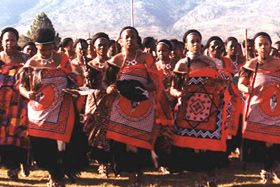
LUTSANGO REED DANCE
The annual event known as the Lutsango Reed Dance is part of the traditional ceremonies in Eswatini. This dance is accompanied by the cutting of reeds by married and unmarried women to perform tribute showing loyalty to the Ngwenyama (The King) and Ndlovukati (The Queen Mother).
The colourful Lutsango reed dance runs for the duration of four days and is led by eMakhosikati.
SIBHACA DANCE
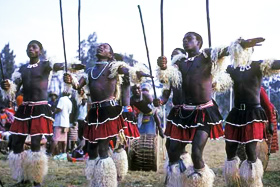
The Sibhaca is a vigorous dance performed by teams of men throughout the Kingdom. It involves the stomping of the feet in unison accompanied by traditional music and rhythmic traditional chants. The men wear colourful quilts and decorate their legs with mohair implements. A typical Sibhaca session can last up to two or three hours, with a variety of difference rotations, songs and styles performed.
